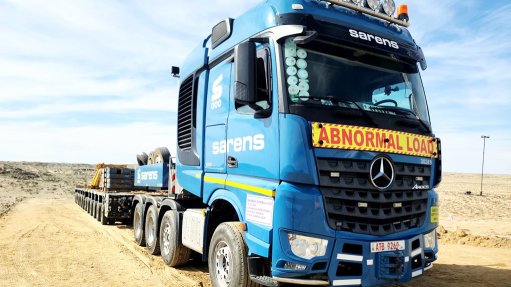Africa’s weed race
Lesotho became the first African country to legalise the cultivation of marijuana for medicinal purposes in 2017. Now – four short years later – a few other countries have followed in its footsteps. And from the look of things, the weed could be commonplace on the continent in the years ahead, what with its considerable revenue-generation potential.
A tiny mountainous kingdom that is completely surrounded by South Africa, Lesotho has always been known to be a giant of the marijuana trade, with the United Nations Educational, Scientific and Cultural Organisation remarking in a research report that “cannabis is grown almost everywhere in the country”. Thus, by granting cultivation and trading licences, the authorities in the Mountain Kingdom brought a vast network of existing farmers and merchants out of the shadows.
The key players in Lesotho’s nascent cannabis sector are offshore companies that are injecting millions in foreign direct investment into the country, thus helping to dent its stubborn unemployment problem. One of the new companies, MG Health, announced last month that it had been certified to export cannabis flower as an active pharmaceutical ingredient to the European Union under the bloc’s Good Manufacturing Practices protocol. MG Health is the first African country to receive this certification.
Second out of the starting blocks was Zimbabwe in 2018, when its Ministry of Health published regulations allowing individuals and companies that are the holders of five-year renewable licences to cultivate the weed for medicinal purposes or research. Next was Zambia, but it emphasised when it announced its new stance in December 2019 that the cannabis to be produced in the country would be exclusively for export. An opposition politician who was a key campaigner for legalisation said at the time that the move could generate yearly export earnings running into billions of dollars.
Legalisation in Malawi occurred in early 2020 with the passing of a law that paved the way for the creation of the Cannabis Regulatory Authority, an entity tasked with granting licences for the cultivation, processing, distribution and export of the weed, as well as permits for the undertaking of research.
Elsewhere in Southern Africa, eSwatini has reportedly appointed a committee to investigate the feasibility of setting up a cannabis cultivation industry in the country, where just like in many countries on the continent, illicit cultivation and consumption are rife. Campaigns for legalisation are also under way in other parts of the continent, notably in Ghana and Morocco.
Enter South Africa. The country’s apex court ruled in 2018 that individuals could grow and consume the weed in private spaces. But Mzansi still has a long way to catch up with Lesotho. It was only recently that government released a draft master plan to commercialise the sector. One hopes that the authorities snap to it. Those in the know tell us that if a cannabis sector were to be set up today, it could be worth about R27-billion by 2023 – in two short years – creating employment for many more people than the 900 000 illicit small-scale farmers that are believed to be active in the Eastern Cape, KwaZulu-Natal and other provinces.
Cannabis has a bright future and is an industry to be in. Globally, it was worth about $10.6-billion in 2018 and this is forecast to reach $97.35-billion by 2026.
If only for the economic benefits, I say viva the legalisation of marijuana. Of course, I don’t mean its mass use for recreational purposes should be allowed. I swear, in my entire life, I have never even done a Bill Clinton, who said during his ultimately successful campaign for the US Presidency: “But when I was in England, I experimented with marijuana a time or two, and I didn’t like it. I didn’t inhale it, and never tried it again.”
Article Enquiry
Email Article
Save Article
Feedback
To advertise email advertising@creamermedia.co.za or click here
Announcements
What's On
Subscribe to improve your user experience...
Option 1 (equivalent of R125 a month):
Receive a weekly copy of Creamer Media's Engineering News & Mining Weekly magazine
(print copy for those in South Africa and e-magazine for those outside of South Africa)
Receive daily email newsletters
Access to full search results
Access archive of magazine back copies
Access to Projects in Progress
Access to ONE Research Report of your choice in PDF format
Option 2 (equivalent of R375 a month):
All benefits from Option 1
PLUS
Access to Creamer Media's Research Channel Africa for ALL Research Reports, in PDF format, on various industrial and mining sectors
including Electricity; Water; Energy Transition; Hydrogen; Roads, Rail and Ports; Coal; Gold; Platinum; Battery Metals; etc.
Already a subscriber?
Forgotten your password?
Receive weekly copy of Creamer Media's Engineering News & Mining Weekly magazine (print copy for those in South Africa and e-magazine for those outside of South Africa)
➕
Recieve daily email newsletters
➕
Access to full search results
➕
Access archive of magazine back copies
➕
Access to Projects in Progress
➕
Access to ONE Research Report of your choice in PDF format
RESEARCH CHANNEL AFRICA
R4500 (equivalent of R375 a month)
SUBSCRIBEAll benefits from Option 1
➕
Access to Creamer Media's Research Channel Africa for ALL Research Reports on various industrial and mining sectors, in PDF format, including on:
Electricity
➕
Water
➕
Energy Transition
➕
Hydrogen
➕
Roads, Rail and Ports
➕
Coal
➕
Gold
➕
Platinum
➕
Battery Metals
➕
etc.
Receive all benefits from Option 1 or Option 2 delivered to numerous people at your company
➕
Multiple User names and Passwords for simultaneous log-ins
➕
Intranet integration access to all in your organisation

















